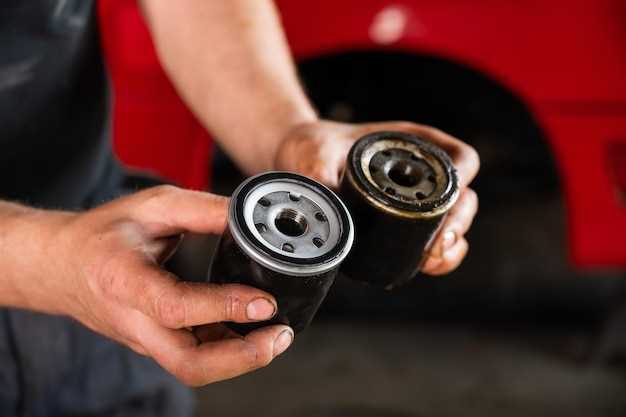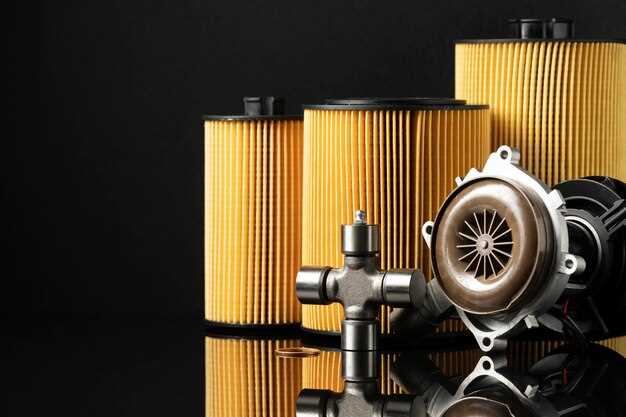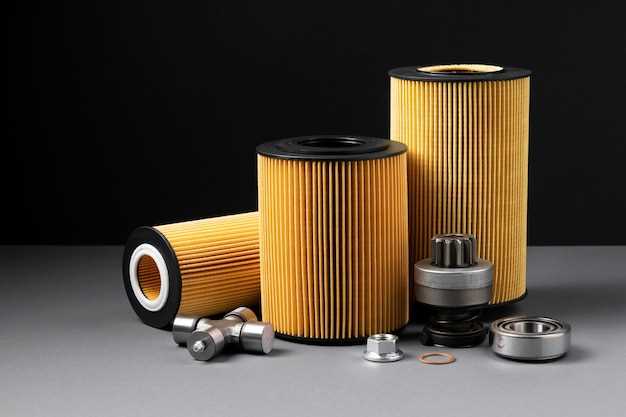
When it comes to maintaining the performance and longevity of your BMW, selecting the right oil filter is crucial. An oil filter serves as the first line of defense against contaminants that can accumulate in the engine oil, ensuring your vehicle runs smoothly and efficiently. Choosing the best filter not only enhances the maintenance process but also protects your engine from wear and tear caused by dirt and debris.
Given the variety of oil filters available on the market, it’s essential to understand what features to look for specifically designed for BMW vehicles. Not all filters are created equal, and selecting a high-quality oil filter tailored to your car model can significantly impact engine health. By focusing on characteristics such as filtration efficiency, durability, and compatibility with your specific BMW model, you can make an informed decision that aligns with your maintenance goals.
This article will guide you through the essential steps to identify the best oil filter for your BMW, discussing the importance of choosing the right product and how it fits into your overall maintenance routine. From understanding the specifications to considering recommendations from BMW enthusiasts, let’s explore how you can secure the longevity and performance of your beloved car.
Identifying the Right Oil Filter Specifications for Your BMW Model

Choosing the correct oil filter for your BMW is crucial for maintaining optimal engine performance and longevity. Each BMW model typically requires specific oil filter specifications that align with its engine design and oil system requirements. To identify the right oil filter, it is essential first to know your BMW’s model year, engine type, and any specific performance upgrades that might affect filtration needs.
Start by consulting your owner’s manual or BMW’s official website for the recommended oil filter part number associated with your vehicle. This information often includes the necessary dimensions, such as height, diameter, and thread size, ensuring a perfect fit. Additionally, check for the type of oil used in your model, as some high-performance BMW engines may require filters that accommodate synthetic oils for better filtration and engine protection.
Look for oil filters that meet or exceed OEM specifications. BMW-approved filters are designed to efficiently trap contaminants while allowing optimal oil flow. Consider filters featuring advanced filtration technology, such as multi-layer media that can capture smaller particles, thereby enhancing engine cleanliness and efficiency.
Finally, pay attention to the filter’s construction quality. Opt for filters made from durable materials that can withstand high temperatures and pressures inherent to BMW engines. Brands that are known for their reliability and performance, given the unique requirements of BMW vehicles, should be prioritized in your search for the right oil filter.
Evaluating Quality and Compatibility: Key Factors for BMW Oil Filters
When it comes to maintaining your BMW, selecting the right oil filter is crucial for optimal engine performance. One of the primary factors to consider is quality. High-quality oil filters ensure effective filtration, allowing clean oil to circulate through the engine while trapping harmful contaminants. Always look for filters that meet or exceed OEM specifications, as these are designed specifically for BMW vehicles.
Another important aspect is compatibility. Not all oil filters are created equal; many are manufactured for specific models and engine types. It is essential to verify that the oil filter you choose is compatible with your BMW to avoid potential issues such as leaks or inadequate filtration. Refer to the vehicle’s owner manual or consult with a trustworthy dealer to ensure you select the correct part.
Additionally, consider the filter’s design and construction materials. Filters made with high-performance materials tend to offer better durability and filtration efficiency. Some manufacturers also include high-capacity designs that can hold more contaminants, thereby extending the time between maintenance cycles.
Ultimately, investing time in evaluating quality and compatibility will lead to enhanced engine longevity and performance. Regularly replacing the oil filter during maintenance not only promotes a healthier engine but also contributes to the overall reliability of your BMW.
Replacement Frequency: When and How to Change Your BMW Oil Filter

Regular maintenance of your BMW is essential to ensure optimal performance and longevity of your vehicle. One crucial aspect of this maintenance is the timely replacement of the oil filter. It is recommended to change your BMW oil filter every time you perform an oil change, typically every 7,500 to 10,000 miles, depending on your driving conditions and oil type.
Changing the oil filter is a straightforward process but requires attentiveness. Begin by preparing the necessary tools, including a wrench, an oil filter removal tool, a new oil filter, and fresh engine oil. Ensure the engine is warm but not hot, as warm oil drains better.
First, locate the oil filter, which is typically found under the vehicle, near the engine. Use the oil filter removal tool to detach the old filter. It’s advisable to wrap the filter in a rag to avoid spills. Allow any residual oil to drain into your oil pan before installing the new filter.
Before installing the new oil filter, apply a small amount of fresh oil to the rubber gasket. This will ensure a proper seal and make future removal easier. Screw on the new filter hand-tight, avoiding over-tightening. After replacing the oil filter, proceed with changing your engine oil to complete the maintenance.
Adhering to this replacement schedule not only enhances the efficiency of your engine but also protects it from potential damage caused by dirt and contaminants. Prioritizing the condition of your BMW oil filter is a vital step in maintaining overall vehicle health.



